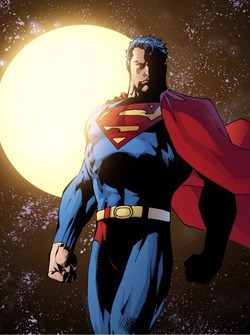 Gay journalist and Superman aficionado Glen Weldon won't be reading Orson Scott Card's Superman story.
Gay journalist and Superman aficionado Glen Weldon won't be reading Orson Scott Card's Superman story.
It's not only that Card's an anti-gay activist who works with the National Organization for Marriage, it's because of the character at hand, Superman. It would be a different story if Card were commissioned to helm a story starring a minor character — oft-mocked Matter-Eater Lad, the avowed geek suggests — but Superman's different; " he's the superhero."
"Superman is an ideal," Weldon writes at NPR. "He represents our best self. That's what he's for. He's not the hero we identify with — that's what Spider-Man is for… In Superman, we see ourselves as we hope to be. It's right there in the name — he's not 'Pretty Good Man' or 'Doesn't Suck Man'; he's Superman. He personifies our noblest ideals, ideals we believe in, and strive for…"
Weldom reminds readers that Superman was originally a "champion of the oppressed," but has picked up some other fitting nicknames along the way, including "man of tomorrow."
One of the other nicknames that accrued to Superman right away – that predates "Man of Steel" by a good amount – is "The Man of Tomorrow." And much of his early iconography bears a distinctive Socio-Realist, Diego Rivera vibe: a lot of burnished golden sunrises, eyes raised to the horizon, gazing into the future.
Because that's where he lives, Superman. And that's what he says to us: We can do better. We can be better, to ourselves, and to each other.
Hey, DC Comics? Be better.
So far it seems DC is standing by their decision to hire Card for the two-part digital story. The company said in a statement, "As content creators we steadfastly support freedom of expression, however the personal views of individuals associated with DC Comics are just that — personal views — and not those of the company itself."



